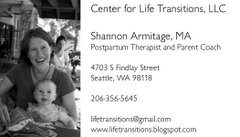In my former work as a teacher, and in my current work as a therapist, I've noticed a growing trend toward children with paralyzing anxiety. These children are incredibly concerned with "getting it right": saying the right thing, dressing the correct way, getting the right kinds of recognition (e.g. grades, etc.). I have some theories about the dominant culture influencing this need for correctness (standardized testing comes to mind), but I've also been wondering about the more subtle ways we adults feed this anxiety for rightness.
I posted earlier about the "monkey mind": that part of your brain when let loose can be limitlessly creative and non-judgmental--a mind freed of its "editor". I'm seeing children as young as 7 or 8 completely cut off from their "monkey mind". They cannot access their ability to create or make-believe because their anxiety over rightness has closed the door to their monkey mind. When taken to the extreme end, these children are cut off from the lifeblood of resiliency: hope. It makes sense. Hope asks us to imagine a different future, one that does not exist in our present. When social anxiety teaches us that imagination and creativity are bad, those "monkey mind" muscles atrophy. Eventually, we forget how to use them at all.
I'm wondering how we as adults model to children both our creative "monkey" sides and our analytical "editors". How do we show both are of value? What are the subtle (and not so subtle) ways we demonstrate that one is preferable over the other? How can we stop ourselves from denigrating our "monkeys" and cultivate a more active "monkey" practice? What in our culture discourages our "monkeys"? And what feeds our "editors"? If our "monkeys" and our "editors" were brought into balance, what would that look like? How would others (children, included) perceive us? How would we know our "monkey" and "editor" muscles were exercised equally?
Thursday, September 18, 2008
Subscribe to:
Post Comments (Atom)


No comments:
Post a Comment